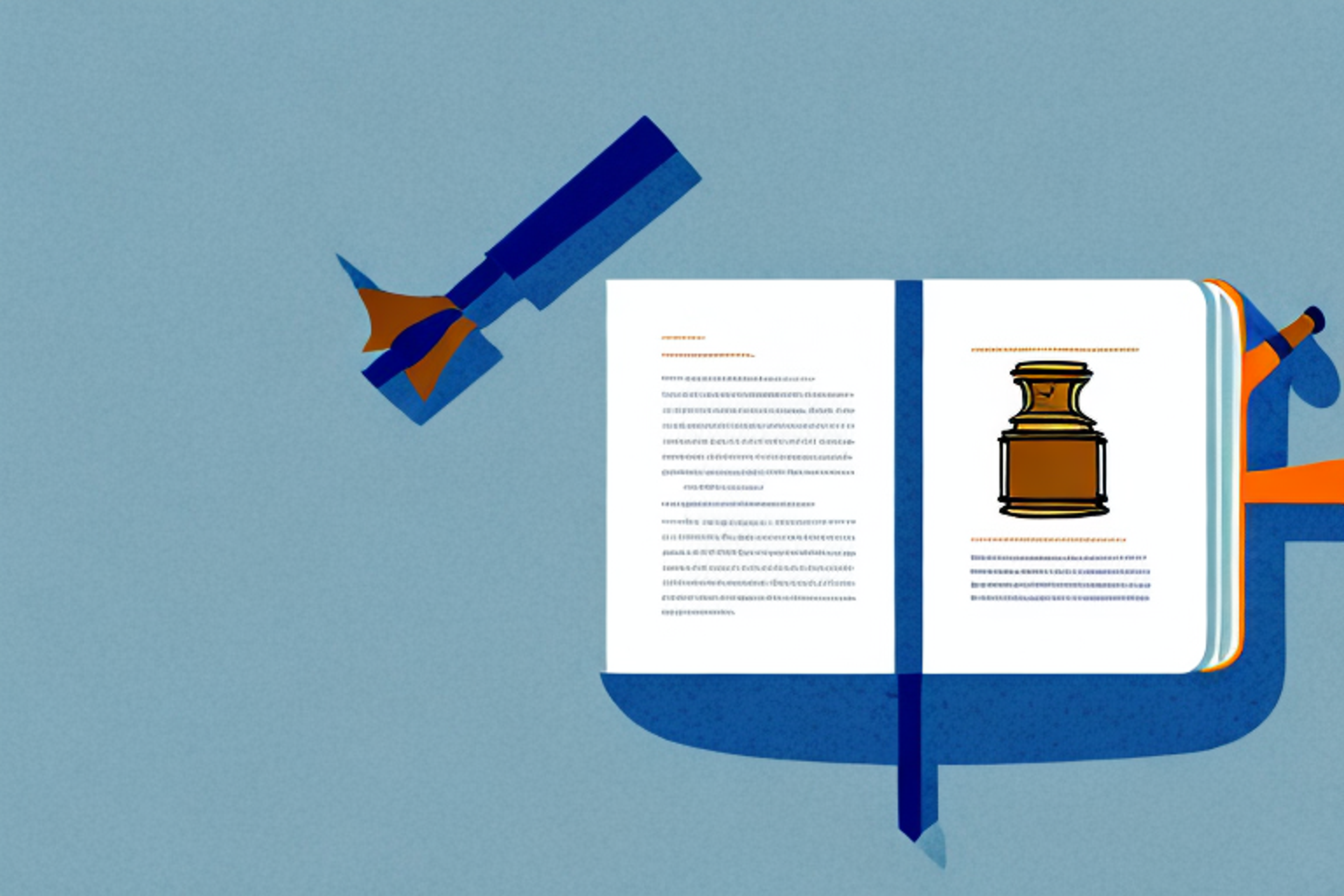Yale Law Personal Statement Guide: Examples & Admit Tips
See real Yale Law personal statement examples, expert tips, and a step-by-step guide to help you write a standout Yale Law application essay.
Posted August 22, 2025

Join a free event
Learn from top coaches and industry experts in live, interactive sessions you can join for free.
Table of Contents
If you're applying to Yale Law School, you already know the odds are steep. With the lowest acceptance rate of any law school in the country and no stated GPA or LSAT cutoffs, your personal statement carries real weight. But what does a successful Yale Law personal statement actually look like, and how do you write one that stands out?
This guide breaks it all down: real insights from admitted students, expert tips from former admissions officers, and sample Yale Law personal statement examples to help you craft your own. We’ll show you what Yale Law is really looking for, what traps to avoid, and how to turn your story into a powerful tool in your law school application.
Read: How to Get Into Yale Law School
Why the Yale Law School Personal Statement Matters More Than You Think
The Yale Law School admissions process is uniquely streamlined—and uniquely demanding. Unlike most law schools, Yale does not ask for a resume, a “Why Yale?” essay, or even a mandatory diversity statement. Instead, you’re given just two double-spaced pages. That’s all the space you have to make your law school application stand apart. In a pool of exceptionally qualified candidates, the personal statement becomes a high-stakes opportunity to show the admissions committee who you are beyond your test scores and transcripts.
This isn’t just about why you’re attending law school; it’s about how your intellectual curiosity, academic maturity, and lived experiences have shaped your desire to pursue law and how you’ll contribute to the Yale Law community in return. Your statement must reflect thoughtful self-awareness, nuanced reasoning, and a clear vision for the kind of lawyer you want to become.
Yale’s admissions officers are known for their holistic approach, and they care about your voice, your clarity of thought, and your potential to shape the future of the legal profession.
What Yale Law Admissions Is Really Looking For
The Yale Law School application is deliberately minimalist—no resume, no optional essays, no space for filler. That’s by design. With only two pages to present your own personal statement, you’re expected to demonstrate a level of reflection and clarity that most applicants never reach. Yale isn’t interested in a list of achievements or a sentimental retelling of your childhood. They want to see how you think.
According to current and former Yale admissions officers, here are the best Yale Law personal statement examples:
- Grapple with complex ideas, not just personal anecdotes
- Avoid generic tropes like “I’ve wanted to be a lawyer since I was a child”
- Reflect serious engagement with the justice system, legal profession, or broader implications of law
- Are intellectually rigorous—more like an academic essay than a diary entry
As one Reddit commenter reflected after reading Yale’s real admit examples:
“They’re smart. Not over-the-top. Not overly emotional. Just clear thinkers, expressing real ideas.”
When it comes to your Yale Law School application, that’s the expectation: a statement that reveals who you are, how you think, and how you’ll contribute, not just as a student, but as a future leader in the legal field.
Read: Yale Law Interview Guide — Questions, Tips, and Timeline
Real Yale Law Personal Statement Example (With Commentary)
"When I moved to Chicago to start my AmeriCorps year, I thought I’d be teaching reading comprehension. Instead, I spent mornings trying to explain eviction notices to parents who couldn’t read them, afternoons helping students through trauma responses, and evenings writing lesson plans for kids whose housing instability was treated as a footnote in their file."
"At the time, I didn’t have the language for what I was seeing. Now I understand it as systemic failure—legal, economic, and educational. I applied to law school because I want to be in the rooms where those systems get built—and rebuilt."
Why it works:
- Immediately grounded in a personal experience with broader implications
- Shows a deep understanding of the legal system and public service without using those exact words
- Clearly illustrates the applicant’s motivation to study law and pursue a career in the legal field
Read: Law School Personal Statement Format & Length: Guide & Tips
How to Structure Your Yale Law Personal Statement (the Way Top Admits Do)
At Yale, clarity and depth always win over gimmicks. The admissions committee is evaluating how you think, what you value, and whether you're prepared for the rigor of a Yale legal education. To meet that bar, your personal statement needs a structure that reveals growth, insight, and purpose. Here’s a proven four-part framework used by successful applicants to Yale and other top law schools:
1. Start with a catalytic moment—something that shifted your thinking.
Begin with a specific experience that left a lasting mark. This doesn’t need to be dramatic, but it must be meaningful. Whether it’s a community service project, a course that reframed your worldview, or a challenge that tested your values, this moment should reflect a key piece of who you are. Avoid vague intros or name-dropping legal terms you don’t yet fully understand.
2. Zoom out to explore the broader implications.
Great essays don’t just recount an experience; they analyze it. What did the moment teach you about the justice system, power dynamics, inequality, or your role in society? This is where you demonstrate analytical rigor. Your reflection should show that you're already thinking like someone preparing for law school, not just applying to it.
3. Connect the dots to your decision to pursue law.
This is where you articulate the through-line from that experience to your decision to apply. Why law—not public policy, academia, or another path? How have your personal and professional experiences shaped this choice? Be honest, specific, and forward-looking. The goal isn’t to sound impressive—it’s to sound clear-minded and purpose-driven.
4. End with where you're going.
Don’t just recap but also project forward. What kind of lawyer do you hope to become? How do your academic achievements, values, or future goals align with Yale’s mission and the type of student they’re looking for? Whether your interests lie in public interest, litigation, academia, or policy reform, give a glimpse into the trajectory you’re building.
This structure doesn’t just work for Yale; it makes your own personal statement one that’s readable, compelling, and grounded in intellectual and emotional maturity. It helps your Yale Law School application rise above generic essays and shows the admissions committee that you’ve done the real work of thinking through why you're attending law school, and why now.
Common Mistakes That Weaken Law School Personal Statements
- Rewriting your resume as a narrative - The admissions committee already sees your resume and transcript. Don’t use your personal statement to recap credentials. Instead, highlight key personal and professional experiences and explain how they shaped your thinking, values, or decision to pursue a legal education.
- Submitting a generic essay used for multiple schools - Yale expects your most thoughtful, specific work. If your essay could be submitted to five other schools with no changes, it’s not Yale-ready. Tailor your content, tone, and depth to meet the unique expectations of the Yale Law School application.
- Trying to sound like a practicing lawyer - Legal jargon doesn’t impress Yale. Avoid performative language or excessive formality. Admissions officers are looking for clarity, originality, and authentic reasoning, not a mock legal brief. Reflect like a serious future student, not a current attorney.
- Ignoring Yale’s formatting requirements - Yale is strict: two pages, double-spaced, 12-point font, and standard margins. Don’t risk looking careless or uninformed by overlooking these technical but crucial formatting requirements. They signal your ability to follow instructions—something the admissions committee pays attention to.
- Failing to center your own personal statement - Too many essays stay surface-level or rely on what you think admissions wants to hear. Your statement should offer insight that only you could write. It’s your job to make the reader believe your story belongs at Yale and that your voice will contribute meaningfully to their community.
Bonus Tips for Yale Law School Applicants (That Top Admits Actually Follow)
At Yale, the bar is different. You’re not just competing on academic credentials—you’re competing on depth, voice, and clarity of thought. These expert-backed tips can help you elevate your personal statement from solid to exceptional:
Don’t shy away from creative or unconventional approaches if they serve your story.
Some of the most successful Yale essays have taken bold risks: opening with poetry, reflecting on failure, or unpacking a quiet, formative moment rather than a dramatic one. The key isn’t novelty for its own sake; it’s authenticity. A surprising structure or metaphor can work beautifully if it deepens the reader’s understanding of who you are and why you’re pursuing a legal education.
Ask yourself the litmus test: “Could this essay have been written by anyone else?”
If the answer is yes, it’s time to go deeper. Yale is looking for a distinctive, thoughtful voice. Your own personal statement should reflect a level of insight that’s unmistakably yours—shaped by your background, values, and how you’ve made sense of your world.
If you submit a diversity statement, make sure it complements—not echoes—your personal statement.
Too often, applicants unintentionally duplicate content across essays. Think of these materials as parts of a single application ecosystem. Each component should reveal something new about you. Your personal statement might focus on your intellectual formation; your diversity statement could speak to identity, adversity, or perspective in the law school community.
Include addenda if needed—but only where necessary, and always separately.
Addenda are appropriate for contextualizing academic anomalies, low LSAT scores, disciplinary issues, or gaps in your transcript. Keep them factual, brief, and clearly labeled. Do not attempt to fold these explanations into your personal statement, as doing so weakens the narrative and distracts from your core message.
Final Thoughts: What Makes a Personal Statement Truly Stand Out
The most compelling Yale Law personal statements don’t just answer a prompt; they make a case. They show the admissions committee how your past experiences, current goals, and future ambitions align with the values of Yale Law School and the broader legal profession. And they do it in a way that’s concise, honest, and intellectually grounded.
The truth? Most applicants have the qualifications to attend top law schools. What separates admitted students is their ability to tell a story that reflects both their best qualities and a clear sense of purpose.
If you're staring down a blank page or an essay that still doesn't feel right, know that you don't have to do this alone.
Work With a Coach to Strengthen Your Yale Law Application
Want expert eyes on your Yale Law personal statement? Leland has top law school admissions coaches, including former admissions officers and successful Yale admits, who can help you craft a statement that truly stands out.
Browse top law school coaches here to get personalized, 1:1 support on your essay, application strategy, and more. Also, check out law school application bootcamps and free events to unlock your full law school potential!
See: The 10 Best Law School Coaches | Law School Admissions Consulting That Works
Read these next:
- How Many Law Schools You Should Apply To (& How to Choose One)
- The Top 10 Accelerated JD Programs
- Law School Application Deadlines (T20 Programs)
- LSAC Credential Assembly Service (CAS): What it Is and How It Works for Law School Applications
- T14 Law Schools: Acceptance Rates & Class Profiles
- How to Get Into Law School: Advice from an Expert
FAQs
Should I talk about my LSAT or GPA in the personal statement?
- No. If you need to explain a score or academic issue, use an addendum. Your personal statement should focus on your voice, experiences, and why you want to pursue a legal education, not numbers.
Read: Law School Addendum: Writing Tips and Samples
What should I write about in my Yale Law personal statement?
- Focus on a personal experience that shaped how you think about the law, justice, or your place in the legal field. Yale values intellectual depth and originality, so go beyond surface-level storytelling—analyze what the experience meant and how it connects to your decision to apply.
How is the Yale Law personal statement different from other schools?
- Yale only asks for a two-page, double-spaced personal statement—no “Why Yale?” essay or resume. That means your essay has to carry more weight. It should be more reflective and analytical than the typical law school essay and show the admissions committee how you think.
Can I reuse my personal statement for other law school applications?
- Sort of. The core story might stay the same, but your Yale version should be the most thoughtful, polished, and intellectually rigorous. If it reads like a one-size-fits-all essay, it probably won’t work at Yale.
Is it okay to write about failure in my personal statement?
- Yes, but only if you reflect on it deeply and connect it to your growth. Yale isn’t looking for perfection. They’re looking for clear thinkers who are self-aware and serious about attending law school for the right reasons.
























